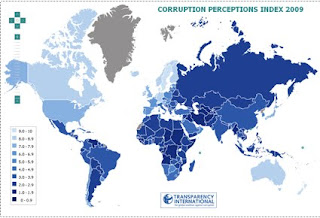n Italy, especially in the south part of it, it is more of a customary tradition to oil some wheels to make sure the system will work in their favor, and this will usually translate in bribing someone.

There are commonalities among some Italian politicians,  like it is a national pastime. I'm talking about the collecting of bustarelle (small envelops containing bribe money).
like it is a national pastime. I'm talking about the collecting of bustarelle (small envelops containing bribe money).
I can still recall (after all this years), of some Sicilian politicians who were masters and completely dedicated to this national pastime.
Not just politician, even Italian businessmen are tempted to illegally jump any red tapes that could otherwise block their roads to success, by just playing a game. The game (as I like to call it) of corruption and bribery.
Nowadays, by just looking at the Italian news I can see the landscape hasn't changed that much! The Prime Minister of Italy, Silvio Berlusconi, started his career as a businessman and rapidly reached the top level of the Italian politics not without an extensive record of controversies (including mafia collusion, false accounting, tax fraud) on alleged corruption and bribery's charges which paved his road to success.
-modif.png) Silvio Berlusconi - Prime Minister of Italy
Silvio Berlusconi - Prime Minister of Italy
Now you can say that he really is, "the Master of this Italian national game"!
As you can see, such practices are commonplaces in Italy. Not doubts, even common citizens can play this national pastime. Anyone could easily bribe a corruptible city official for a reasonable prize of a tot lire (lira - old Italian currency, today Euro currency) for an own interest.
The forms that bribery can take in Italy are numerous. For example, anyone can easily bribe his way out from paying a traffic ticket, or a father could easily get for his own son, a secure governmental job by just paying some people placed high enough in the Italian governmental sphere of influence.
Now here is a 2009 list of Countries in which the corruptions are less diffuse, Italy is placed in the 63rd in it. This survey from Transparency International has examined 180 States based on perceived levels of corruption in the public sector and it has assigned votes from 0 to 10, where 0 means nation at the mercy of corruption and a 10 means a virtuous nation.
 Click map above to launch an interactive version with individual country scores.The darker the blue, the higher the perceived level of public sector corruption.
Click map above to launch an interactive version with individual country scores.The darker the blue, the higher the perceived level of public sector corruption.
(P.S. You need Flash Player and JavaScript enabled to make this work)
New Zealand is the least corrupted country with a score of a 9.4, in second place Denmark with a 9.3, and in the third position Singapore with Sweden sharing it with a score of 9.2.
Italy has scored in it with a 4.3 and it is far behind the United Kingdom (in the 17th position with of a 7.7 score), Germany (in the 14th position with a score of 8.0), France ( 24th with a 6.9 score) and finally the United States (in the 19th position with a 7.5 score).
And at the bottom of this list, countries like Myanmar (placed in the 178 with a 1.4), Afghanistan (in the 179 with a 1.3) and last Somalia (in the 180th with a mere 1.1) are the lowest-ranked countries in this Transparency International's annual global survey.
As you can see by reading from this list, war-torn and poorer nations are the most corrupt.

All the above doesn't mean that here in the U.S. politicians, businessmen and common people as well, do not have the same tendency to moral looseness  ! When comes down to individual corruptibilities the people from here aren't refractory, or immune to the monetary allurements.
! When comes down to individual corruptibilities the people from here aren't refractory, or immune to the monetary allurements.
You can well say that the system of punitive laws and investigative works put in place in the U.S. are more effective than in Italy. And because of this more complex system of checks and balances here in the United States, these endless games of corruptions and briberies can't be played as often as happens in Italy or in any other nation.



 Click map above to launch an interactive version with individual country scores.The darker the blue, the higher the perceived level of public sector corruption.
Click map above to launch an interactive version with individual country scores.The darker the blue, the higher the perceived level of public sector corruption.








-modif.png)






0 Comments: